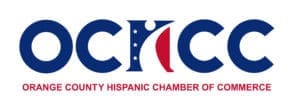By Professor William Dixon
Everyone should know the basics of bankruptcy law. The bankruptcy system in the United States is designed to provide relief from crushing debt while at the same time providing an orderly and prioritized system for distribution of available assets to creditors. In the case of personal bankruptcy, the system offers debt relief, a set of exemptions designed to ensure that a person declaring bankruptcy will be able to retain those things that are necessary for such as clothing, household goods, some equity in a vehicle, and real property as well as a range of carefully selected items like the tools of ones trade.
The bankruptcy system provides the opportunity for a new financial beginning. Several types of bankruptcy are available. Most individuals select a Chapter 7 bankruptcy which wipes out much unsecured debt other than spousal and child support obligations and student loans. Others may choose Chapter 13 bankruptcy whereby they may retain their property but must pay back a significant portion of their debt over a three to five year period.
Although businesses may choose to liquidate, many prefer to reorganize under Chapter 11 so that they may emerge from bankruptcy with the business intact. Successful reorganization allow the business to continue to operate, thus protecting business owners and employees’ jobs while ensuring that credits will recover some of the money owed to them.
As a paralegal, you will assist clients who are under crushing debt brought on by such things as job loss, catastrophic medical bills, divorce, and death. You will help them turn their financial lives around and get a new start without the crushing debt that makes life seem hopeless. You will learn bankruptcy law basics and how to process a personal or business bankruptcy using a specialized computer program to prepare the necessary documents.









